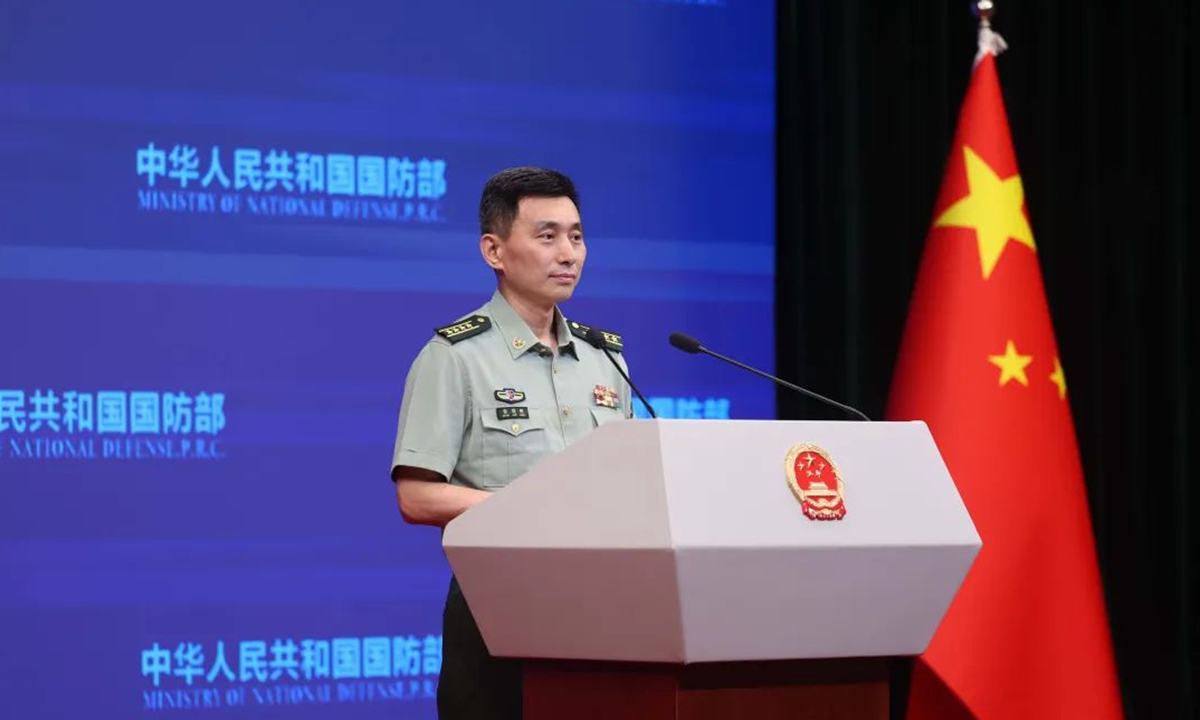
Photo taken on March 17, 2020 shows U.S. dollar banknotes in Washington, DC, the United States. Photo:XinhuaThe US government's gross national debt has surpassed $37 trillion, a record number that highlights the accelerating debt on America's balance sheet and increased cost pressures on taxpayers, the AP reported. The $37 trillion update is found in the latest Treasury Department report issued on Tuesday, which logs the nation's daily finances, according to the AP report.
Experts said that as the debt scale grows larger, future interest payment costs will continue to rise, posing risks to fiscal sustainability, while global investors may grow wary of US Treasury bonds amid credit downgrades and uncertainty.
The $37 trillion debt milestone comes less than eight months after the nation hit the $36 trillion threshold for the first time in late November 2024, and a little over one year after the $35 trillion mark was reached in late July 2024, Fox Business reported.
The $37 trillion debt amounts to about $280,000 per household or $108,000 per person, according to the Peter G. Peterson Foundation.
The national debt soaring past $37 trillion sends yet another clear message about America's unsustainable fiscal path, Chair and CEO of the Peter G. Peterson Foundation Michael Peterson said in a statement on its website.
"Our growing debt slowly damages our economy and the prospects of the next generation. As the government borrows trillion after trillion, it puts upward pressure on interest rates, adding costs for everyone and reducing private sector investment. Within the federal budget, the debt crowds out important priorities and creates a damaging cycle of more borrowing, more interest costs, and even more borrowing," Peterson said.
The Government Accountability Office outlines some of the impacts of rising government debt on Americans — including higher borrowing costs for things like mortgages and cars, lower wages from businesses having less money available to invest, and more expensive goods and services, according to the AP.
The Joint Economic Committee estimates at the current average daily rate of growth, an increase of another trillion dollars in the debt would be reached in approximately 173 days, according to the AP.
Peterson warned that "As our debt continues to rise, at some point the financial markets will lose confidence in our ability to overcome the politics to solve this problem."
To repay maturing debt, the US government has been issuing new debts to repay old ones, leading to the continuous expansion of the overall debt load. As the debt scale grows larger, it means that the future interest payment costs will continue to rise, posing risks to fiscal sustainability, Zhou Mi, a senior research fellow at the Chinese Academy of International Trade and Economic Cooperation, told the Global Times on Wednesday.
If maturing debts cannot be repaid, US debt will become unsustainable, and its credit ratings may be downgraded, creating significant risks for global investors, Zhou added.
The expansion of the US government's debt scale has brought more uncertain risks to investments in US Treasury bonds, making global investors more cautious, Zhou said.
"Factors such as rating agencies' changes in sovereign credit ratings and sharp swings in US tariff policies at the real-economy level have added to this uncertainty," Zhou added.
Yang Changjiang, a professor at Fudan University, told the Global Times on Wednesday that the expanding US government debt has also brought greater uncertainty to the global financial market and the stable operation of the international monetary system.
In May, Moody's downgraded the US sovereign credit rating. It is expected that US large-scale fiscal deficits will further increase the burden of government debt and interest payments, and the fiscal situation is likely to deteriorate, Yang said.
Moody's Ratings in May cut the US' sovereign credit rating by one notch to Aa1 from Aaa.
"This one-notch downgrade on our 21-notch rating scale reflects the increase over more than a decade in government debt and interest payment ratios to levels that are significantly higher than similarly rated sovereigns," said a release by Moody's Ratings.
The US fiscal performance is likely to deteriorate relative to its own past and compared with other highly rated sovereigns, according to the credit rating agency.
The downgrade means the US has lost its last triple-A credit rating from a major ratings firm, following cuts by Fitch Ratings in 2023 and S&P Global Ratings in 2011, according to Xinhua.Related:






